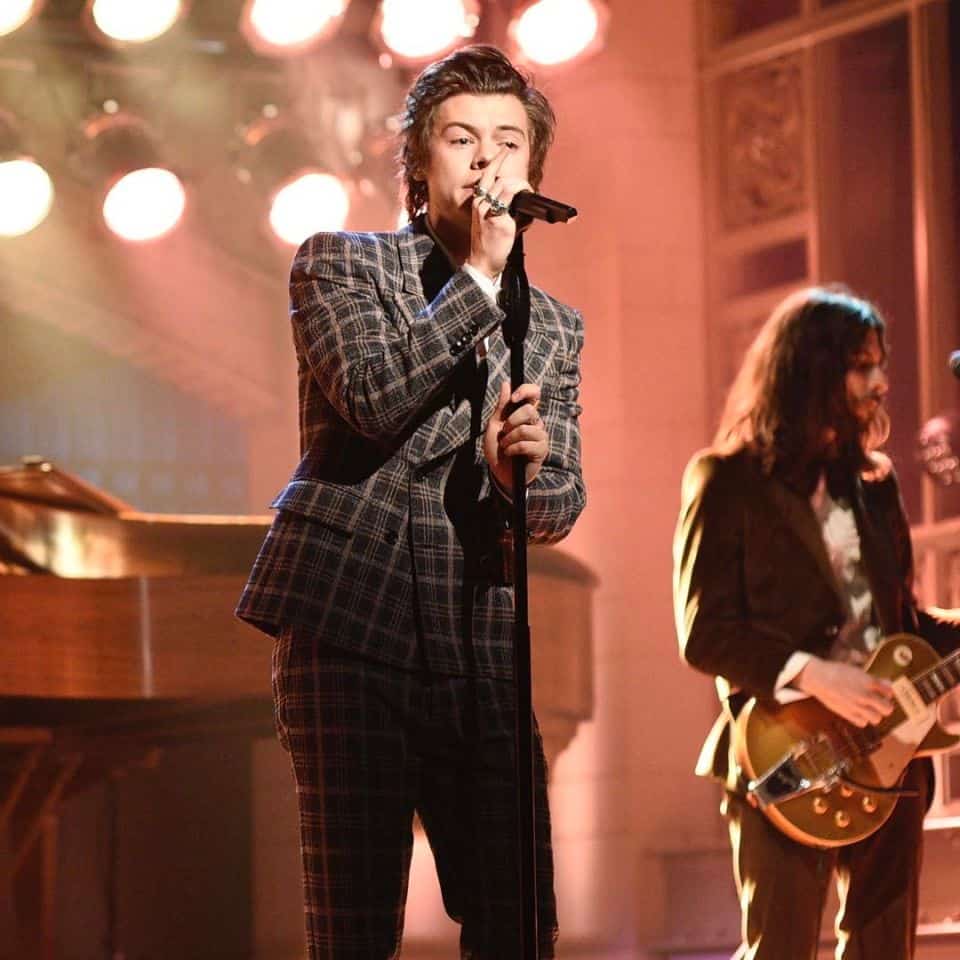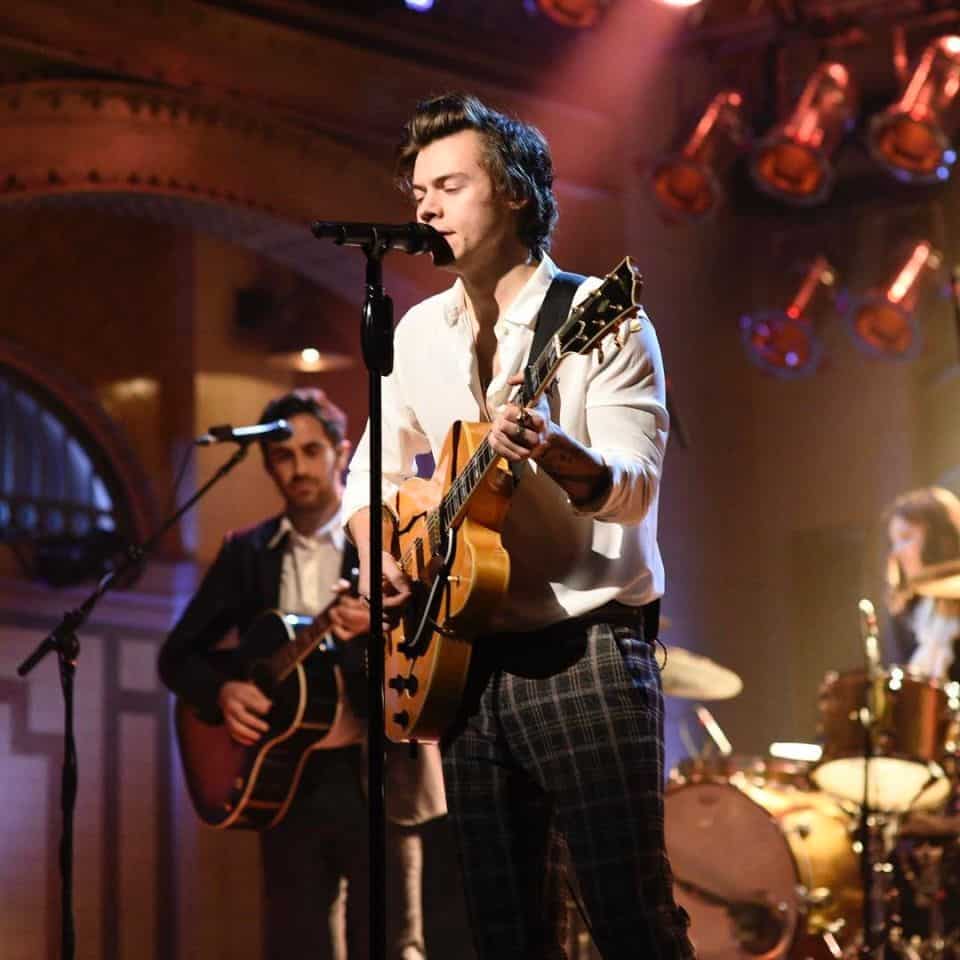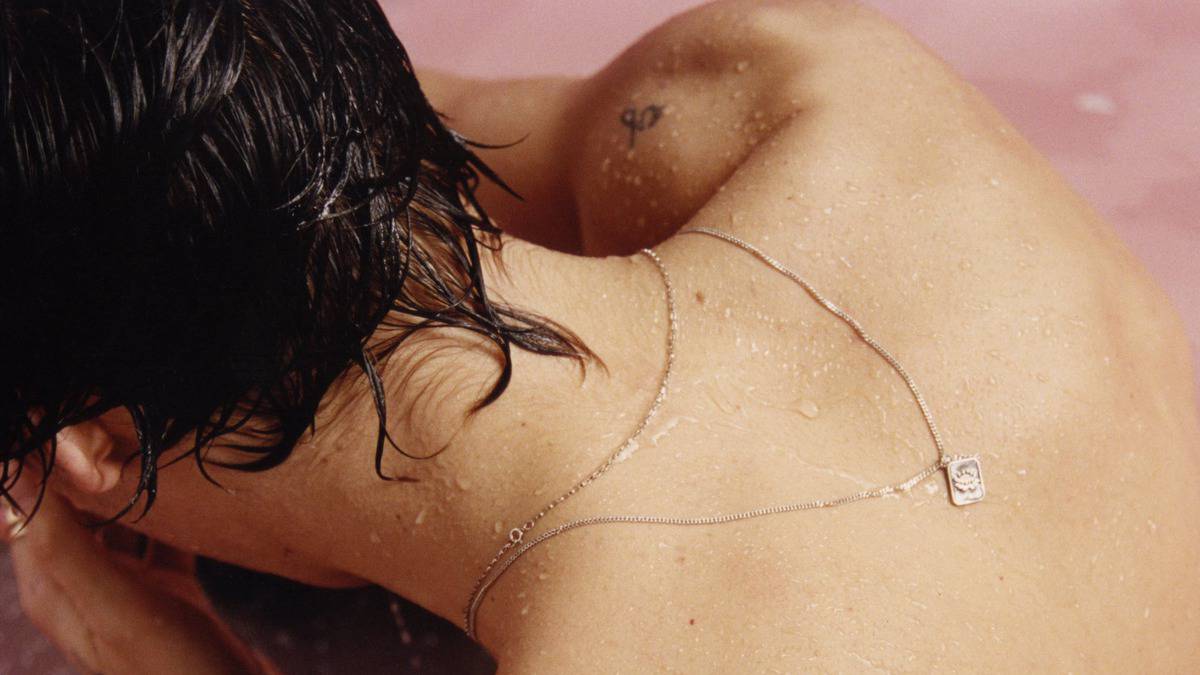The world needs to listen more attentively to the voices of teenage girls. Lately, they’ve been raving about the handsome and talented Harry Styles–One Direction band member who went solo on Friday with his debut album Harry Styles. At a school not so far, far away, I can almost hear a young lady whisper longingly, “He’s so dreamy,” with her chin cupped between two scrawny palms. Not far away, a group gathers outside a classroom door. Circled around an iPhone, they swoon as Styles tenderly sings, “Meet me in the hallway.” When he softly repeats, “Meet me in the hallway,” they fall to the floor in unison.
Something about this man has attracted 30 million followers on Twitter and 15 million “likes” on Facebook. He’s one of the heartthrobs of our age. People are dying to hear his music, and his message is reaching the masses, or at least the masses of teenage girls.
Many frown when I mention that Harry is now among my favorite male artists. They eek, “Yeah…you and a bunch of sixth grade girls.” However, their misogynistic comments don’t get me down. They don’t phase Harry, either. In an interview with Rolling Stone, he rightfully quips,
Who’s to say that young girls who like pop music – short for popular, right? – have worse musical taste than a 30-year-old hipster guy? That’s not up to you to say… How can you say young girls don’t get it? They’re our future. Our future doctors, lawyers, mothers, presidents, they kind of keep the world going. Teenage-girl fans – they don’t lie. If they like you, they’re there. They don’t act ‘too cool.’ They like you, and they tell you. Which is sick.
So enough with the condescension. Let’s get to the heart of the matter: why is Harry Styles a thing? As any good essayist, I’ve got three points: (1) he’s got style, (2) he’s retro, and (3) he’s constantly in and out of love.
The guy is dapper. By that, I mean that he is “neat, trim, and spruce” according to the OED.1 You might think, “Yeah, he’s dapper, but we aren’t meant to judge by looks, right?” Wrong. I happen to think that looks are important, at least for people who have sufficient discretionary funds to be able to choose their style.2 He’s stylish, and, frankly, human beings are a body-soul union. Those who refuse to care for their appearance degrade the dignity of the human person. Harry is not one of those people, which brings me to my second point.
Harry has a particular style: retro. A few weeks back on SNL, he performed his album’s biggest hit “Sign of the Times.” Wearing an old-school, double-vested, plaid Gucci suit from the Fall 2017 collection, he made a clear statement about the relationship between his new album and what has come before.

photo: @nbcsnl/Instagram
The young man is aware of his place in the history of pop rock. His dress signals a broader trend towards musical pastiche that his album frequently employs. While he clearly “pastes” sounds and styles germane to his parents and grandparents, he does so without losing his distinctive contemporary flare. He speaks to the present with an awareness of the past. The album is not a reinvention of the wheel: it’s more like an elegant-yet-surprisingly-flashy rim. It spins on its own within a pre-existing frame. It’s not surprising that his second outfit on SNL was a combination of styles.

photo: @nbcsnl/Instagram
This move in attire acts as bridge between the old and the new, which parallels the message of “Sign of the Times.” The epic power ballad is dreamlike and apocalyptic. Its lyrics speak of the “final show,” encouraging an escape in the face of an impending “end.” Despite the doom and gloom, Harry’s voice is resolute and detached from any hint of sensationalism. “We never learn, we’ve been here before,” he sings, a message of simultaneous condemnation and reassurance. He’s rooted in a history that contextualizes the present.
In the struggle for justice, we’ve moved through seemingly dark times before, and we will again. Harry explains as much to Rolling Stone: “’Sign of the Times’ came from ‘This isn’t the first time we’ve been in a hard time, and it’s not going to be the last time.’” As an old history professor of mine liked to claim, if you think it’s bad now, then you don’t know your history. Harry concurs. His retro style gives an impression of maturity, a quality confirmed by his music. He might be young, but there is a real wisdom here.
The real wisdom of the album is not about the “times” but about love. Historical pastiche is the style, but love is the story.3 Raw love fills the verses of every song on the album.4
“Kiwi” and “Only Angel” speak of mad love, an initial, rapturous surge of passion. He rocks out, chanting , “She drives me crazy, but I’m into it.” Notes from guitars rip and swell like blood coursing through the valves of an infatuated heart. “From the Dining Table” and “Meet Me in the Hallway” speak of jaded love. Like blood, love fills us with life, but, when we get hurt, it forms bruises and scars. Now far removed from the enthrallment of newfound desire, Harry speaks of a state of isolation. He’s “alone in that hotel room,” feeling frustrated and rejected. Nothing seems to click. “Even my phone misses your call,” he sings in desperation. Hushed streams of chords are his only companions.
Similarly, “Two Ghosts” speaks of fading love. It’s a slower tune with hints of country. The mood is nostalgic. Time has reduced the billowing flames of a raging fire to smoke and ashes. “We’re not who we used to be,” he admits with a voice full of somber nostalgia. Love, it seems, brings both ecstasy and withdrawal.5
There are heavier rock songs that communicate the thrill of love, and there are lighter, soft rock songs that convey the melancholy of a wounded yet longing heart. There is a song for every stage in a relationship. Touring through his memories, Harry also tours through several generations and styles of music. He’s in touch with his musical roots just as he’s in touch with his feelings.
He’s achieved his self-stated goal of being “honest.” The pastiche of musical forms isn’t unintentional, lazy and derivative; rather, it is the musical DNA with which he transcribes his story. The listener can tell by his voice that the lyrics are more than words on a sheet or tips of the hat to his predecessors. They mean something to him, and this candor resonates with the emotions of humanity’s most sincere population: teenage girls.6
Like Harry Styles, teenage girls are vulnerable with themselves. They experience its highs and lows in real time. They live for the rollercoaster of love. Even in the lows, something tells them that love is worth the risk even though others have given up on its pursuit. But, others have wounds and resign themselves to never seek love again. Others, paralyzed by a fear of getting hurt won’t even get on the ride.
Styles cuts through all of this. He and the youth of this world reject the worn-out somberness they see around them, and–at times–within them. Rather than surrendering to a stale pessimism disguised as realism, they want to soar. There is a desire for love that persists even as Harry reveals his wounds. In his earnestness, faith, hope, and love remain in the midst of doubt, despair, and fear. The album is a tribute to these deep, pure desires, which extend beyond earthly limitations.
We might be tempted to roll our eyes as Styles takes flight in the “Sign of the Times” music video, but he and his fans pity those whose feet are too firmly planted on the ground. Harry feels for those “running from the bullets,” avoiding love for fear of heartbreak. He doesn’t want to live fleeing his wounds, and he doesn’t want you to either. As some close themselves off from love, Harry doubles down, belting, “We should open up.” As others mope with heads turned towards the ground, Harry wants you to break “through the atmosphere.” There is a love yet to be found, and Styles hopes that he and his teenage fans aren’t the only ones still looking for it.
- It doesn’t mean, as I can imagine some might think, that he is one who dabs: that is a “dabber.” He might be a “dabber,” as well, but anyways… ↩
- St. Ignatius agrees, in paragraph 158 of the Constitutions he says of men to be admitted into the Society: “They should have a good appearance, by which those with whom they will deal are usually more edified.” Harry, I offer you an invitation to join us… ↩
- In one interview, he reveals, “The one subject that hits the hardest is love…I don’t think people want to hear me talk about going to bars, and how great everything is. I want to hear, ‘How did you feel when you were alone in that hotel room, because you chose to be alone?’” ↩
- Perhaps with the exception of “Sign of the Times”–it’s a little ambiguous there ↩
- Ed. Note: The internet thinks this song is about Taylor Swift, who Harry briefly dated five years ago. ↩
- At least as far as fidelity to teenage heartthrobs go ↩


